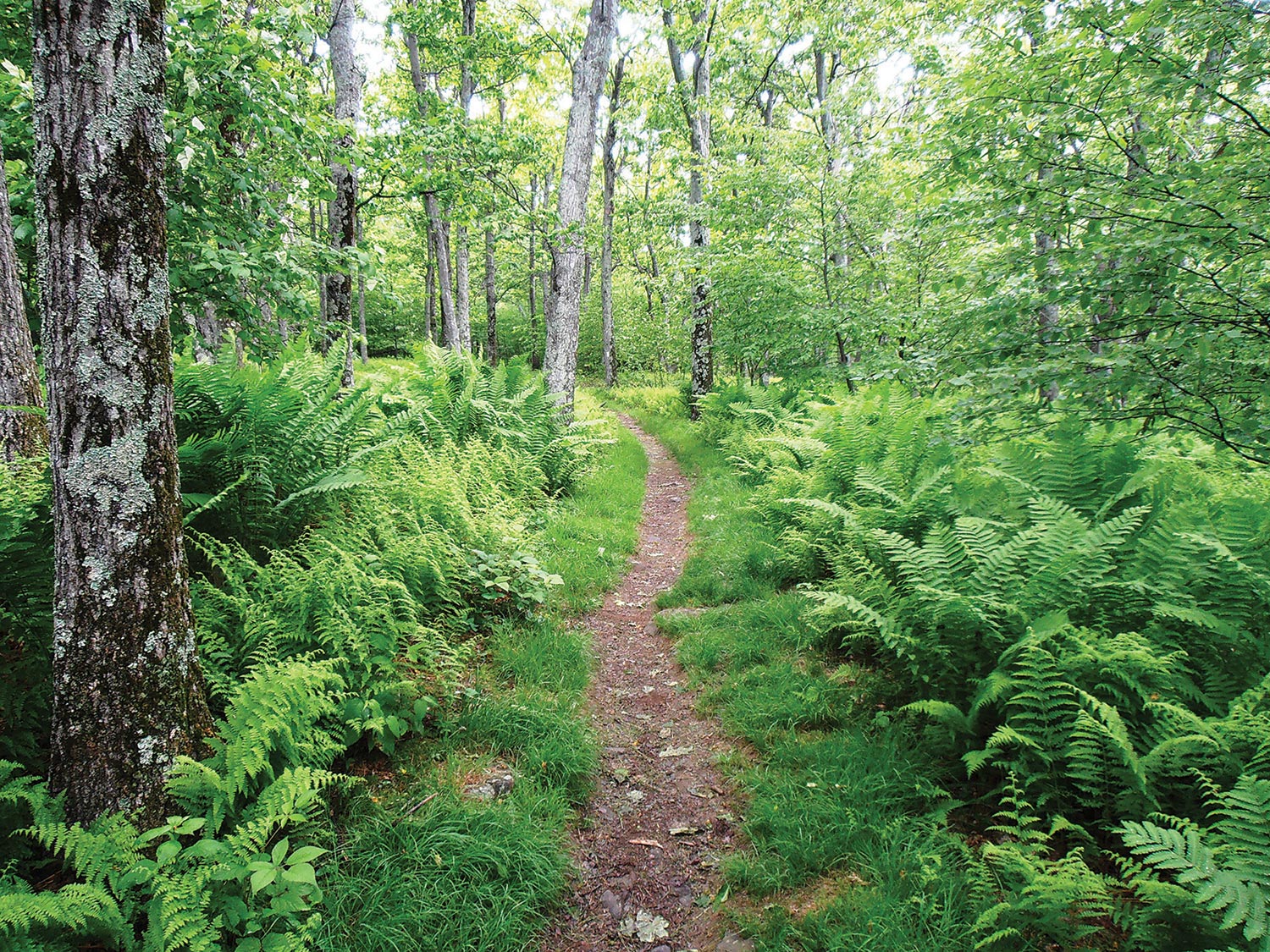the ATC Opposes Legislation
to Allow Bikes in Wilderness Areas
the ATC Opposes
Legislation to
Allow Bikes in
Wilderness Areas
By Lynn Davis

The A.T. in Shenandoah National Park is part of a federally designated wilderness area
![]() Photo by Ken Miller
Photo by Ken Miller
Federal legislation to amend the Wilderness Act to allow mountain bikes and other forms of mechanized transport in designated wilderness areas is — at press time — before the U.S. House of Representatives. H.R. 1349 would overturn the original intent of the 1964 Wilderness Act, which protects and preserves primitive conditions.
The Appalachian Trail Conservancy (ATC) joins with the Pacific Crest Trail Association, the Partnership for the National Trails System, several A.T. clubs, and more than 100 other conservation organizations in opposing H.R. 1349. Approximately 150 miles of the A.T. pass through 25 federally designated wilderness areas including wilderness in Shenandoah National Park.
How the A.T. might be affected is, quite frankly, a big unknown. Could allowances for mountain bikes in wilderness areas supersede the vision and congressional intent to keep the A.T. solely a footpath? Could some sections of the A.T. be required to allow bikes? And if so, what kind of management challenges would that pose? If passed, court challenges are anticipated to sort out several questions. The ATC and other groups are firm in opposing this legislation rather than risk contrary court decisions.
In addition, the ATC has registered grave concern that the possibility of allowing mountain bikes on the A.T. would directly impact the tremendous effort volunteer Trail maintainers have undertaken to sustain and improve the Trail. Moreover, bikes on the Trail would damage the overall A.T. nature and purpose as well as the overall A.T. experience. “The A.T. was envisioned as a retreat from the hustle and bustle of modern-day life, as a special and exceptionally scenic place that honors the simple art of walking and personal achievement,” says Morgan Sommerville, the ATC’s southern regional director. “Bikes on the A.T.’s narrow treadway would significantly diminish the experience hikers seek and jeopardize hiker safety. Imagine having to be alert for mountain bikes behind you or ahead. Then imagine dodging off the trail to accommodate bikes speeding by.”
The ATC supports mountain biking on trails built and designated for mountain bikes. (The A.T. is not designed or built to accommodate them.) The ATC works with the International Mountain Biking Association (IMBA), the long-established worldwide leader in mountain bike advocacy, in supporting the organization’s focus on Trail access, education, and experience. Notably, IMBA is not pushing H.R. 1349 and, instead, submitted written testimony calling for a collaborative approach in identifying new areas for mountain biking. “Public lands are being threatened at an unprecedented level right now, and it’s imperative that public land users come together to protect these cherished places and offer our voices in this critical dialogue,” says Dave Weins, IMBA’s executive director.
What’s ahead? The ATC and A.T. clubs will continue to work with conservation groups across the country in appealing to House members to scuttle legislation that is unnecessary and attempts to undermine the venerated principles of wilderness. Should the legislation pass in the House, focus will move to educating Senate members on the potentially devastating consequences.
To register your concerns about this legislation visit: appalachiantrail.org.